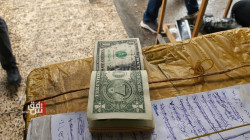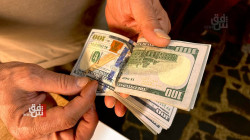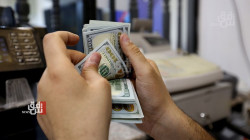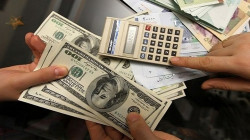Dollar dives in Iraq: Factions' gambit or economic progress?
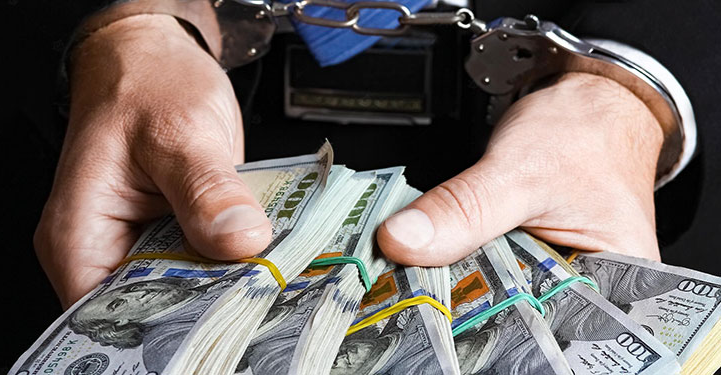
Shafaq News/ The recent appreciation of the Iraqi dinar against the US dollar has stirred concern among economists, who argue that the shift is not backed by structural reforms or sustainable changes in foreign currency management.
Instead, they warn that the current trend may be short-lived and vulnerable to sudden reversals driven by political or security tensions.
On Thursday evening, Baghdad’s al-Kifah and Al-Harithiya currency exchanges closed with a rate of 142,700 IQD per 100 USD, while exchange shops in local markets were selling dollars at 144,000 IQD and buying at 142,000 IQD. In Erbil, the capital of the Kurdistan Region, the rate stood at 142,900 for selling and 142,800 for buying.
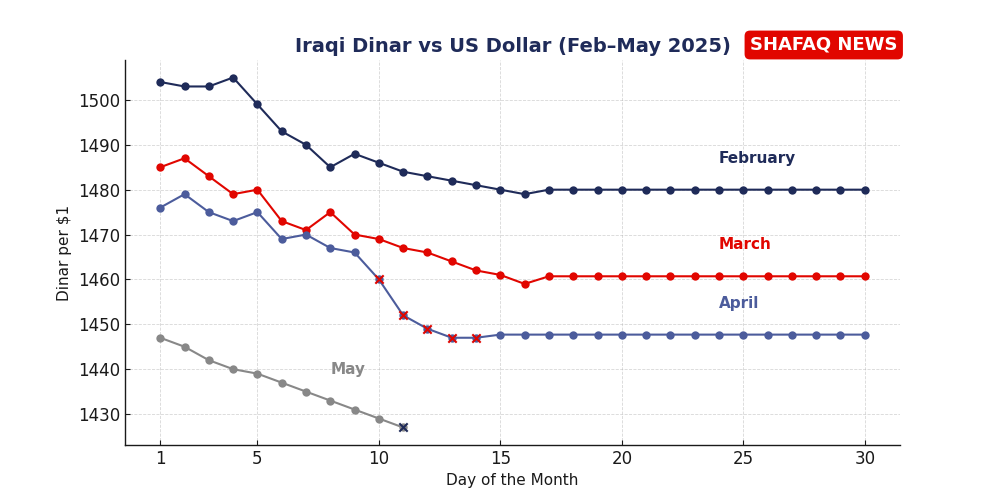
Serious Risk
“This drop poses a significant risk,” said Kazem Al-Shammari, a member of the parliamentary Economic Committee. “The dinar’s current strength is artificial. It’s not rooted in daily usage or public confidence. A large amount of cash remains hoarded in homes.”
Al-Shammari emphasized that the public’s purchasing power relies on the economy’s overall strength. “If the economy weakens, no exchange rate can compensate. Those celebrating this drop in the dollar may be misreading the situation,” he said.
With parliament currently in recess, Al-Shammari said discussions will soon shift to the Central Bank governor to understand whether this decline is deliberate or reactive, and what corrective measures are being considered.
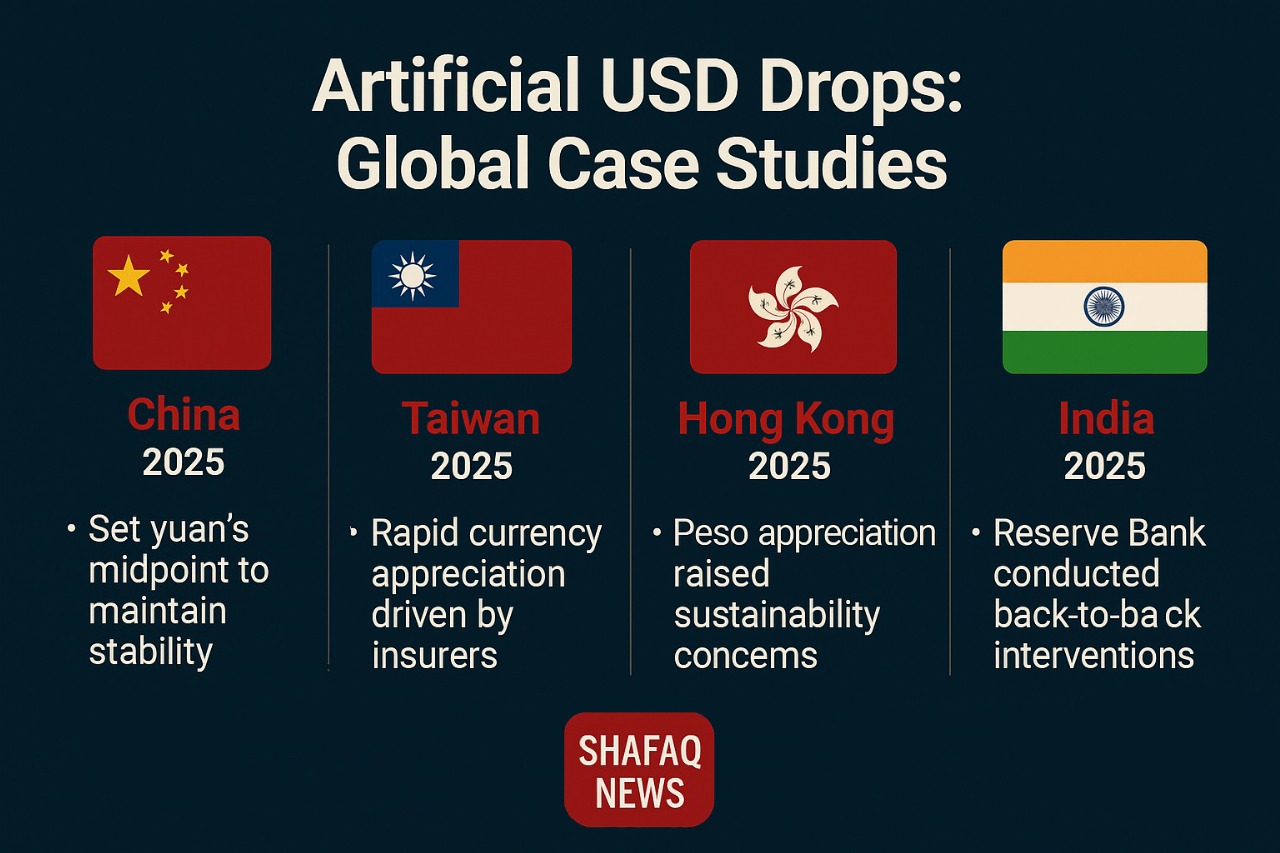
Factions Tactics?
Economic researcher Ahmed Eid attributed the current dip in the parallel market dollar rate to short-term factors, including a reduction in official import volumes, tighter border controls, and enhanced surveillance of cash movements.
“The drop in demand reflects recent financial shifts within Iraq’s market,” Eid told Shafaq News.
He pointed to expanded dollar sales by official banks and broader coverage of legitimate demand (travel, medical expenses, education) as having relieved pressure on the black market. However, Eid warned that these gains are tenuous.
“Many economic offices affiliated with political factions and armed groups have scaled back operations under international pressure. This pause is likely tactical, not permanent.”
According to Eid, these unofficial networks were key drivers of dollar demand, often involved in money transfers and currency smuggling. Their current dormancy has eased demand, but it could reverse quickly.
“This is not true stability. It’s conditional and could collapse with the return of smuggling networks or political disruption,” Eid warned.
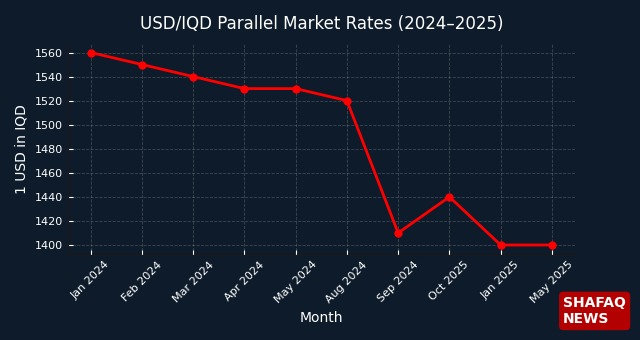
Government Measures?
In contrast, Dr. Mudher Mohammad Salih, the Prime Minister's financial advisor, praised the dinar’s rebound as a sign of effective policy execution.
He credited the Central Bank with enabling private-sector trade financing, expanding direct dollar sales, and reducing the need for costly intermediaries. These measures have made foreign currency more accessible to travelers and small traders, reducing reliance on black-market exchanges.
Economic expert Nawar Al-Saadi agreed, noting that electronic payment expansion has weakened the public’s dependence on physical dollars, particularly among travelers.
“We’ve seen a clear effort to absorb excess dinar liquidity, encouraging shifts to other safe havens like gold,” Al-Saadi said.
He added that non-oil financial inflows, lower import demand, and greater control over illegal outflows have helped stabilize supply-demand dynamics in Iraq’s FX market.
While recent trends suggest a more stable currency environment, experts remain divided. Some cite temporary compliance by illicit networks and reduced demand as key, while others credit government reform measures.
Still, many agree: without deeper structural change, the current dinar strength may prove temporary, particularly if regional volatility or political instability returns.
